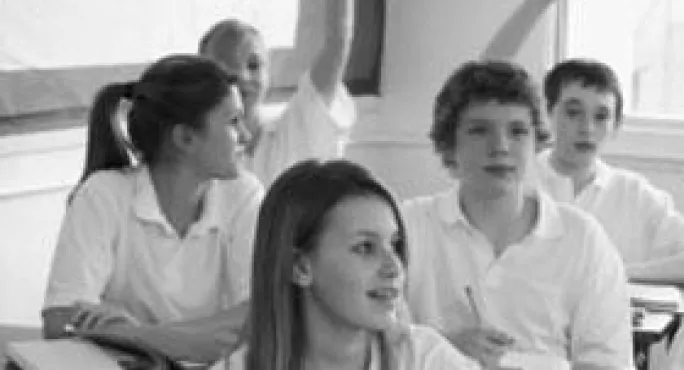‘Bit in the middle’ years to be reviewed

A major review of the “bit in the middle” curriculum for eight to 14- year-olds was announced by the Assembly government this week.
A team of headteachers, officials and academics will explore whether the buffer zone between the foundation phase for under-sevens and the learning pathways for 14-19s is producing good academic results and promoting pupil wellbeing. The team will report its findings to David Hawker, Wales’s leading education official, this autumn.
There are growing concerns among primary teachers that the more formal key stage 2 timetable does not marry well with the play-led foundation phase.
But unions said this week that there was no appetite for another curriculum overhaul on the scale of the foundation phase. It is also feared that the review could see the return of middle schools, where pupils spend a couple of years before transferring to the school where they sit their GCSEs.
Elaine Edwards, general secretary of Welsh-medium teachers’ union UCAC, said schools needed continuity and stability, not more government policy. “What we don’t want is another new curriculum to contend with, or to go back to middle schools,” she said.
But David Egan, professor of education at UWIC and chair of the review, said his remit would not be on the scale of the Rose review in England, where controversial proposals to overhaul the primary curriculum are under consultation.
Instead it will be about the lack of a clear policy for eight to 14s. “We have a very distinct policy for our youngest children and a clear policy again for 14-19s. But there’s a feeling that eight to 14 is the bit in the middle,” he told TES Cymru.
Sir Adrian Webb called for a review of post-11 education in his 2007 report on further education in Wales. Professor Egan said the government had decided to expand this suggested review to include eight to 10-year- olds.
The academic and ex-advisor to former education minister Jane Davidson said the review was not “about diving in the deep end”, but there needed to be an investigation.
“This is a ground-clearing exercise,” he said. “Schools do not want another major initiative, and it is not a case of going back to middle schools. We are asking if there is a joined-up policy for eight to 14- year-olds? Is there a philosophy for this age group? We want to look at that, not pre-judge it.”
One of the biggest concerns is over inconsistent performances at the end of primary and beginning of secondary school, he said.
Ms Edwards said a lot of UCAC’s primary school members were worried that their teaching styles would fail them once they were faced with pupils used to play-led learning.
“Nobody knows how children brought up on the foundation phase will respond to a more formal style of education at age eight,” she said. “Teachers want to know what the future’s going to hold.”
If the review does reveal “deep flaws”, teachers would need to be convinced that something had to be done, she added.
Dr Philip Dixon, director of teachers’ union ATL Cymru, agreed that the review’s most important task would be to investigate the transition from play-led to formal learning. “Once children have gone through the experience of learning in the foundation phase, you’re not going to be able to corral them back to an older form of teaching,” he said.
Teachers must be involved in the review’s research and in future consultations, he added.
Professor Egan said it would be up to Mr Hawker, director of the Department for Children, Education and Lifelong Learning, to formulate a plan following the review.
“In the first stage, we will look at the policies that are already in place to see whether they are joined up or, if there are gaps, how they might be plugged,” he said.
Keep reading for just £1 per month
You've reached your limit of free articles this month. Subscribe for £1 per month for three months and get:
- Unlimited access to all Tes magazine content
- Exclusive subscriber-only stories
- Award-winning email newsletters



